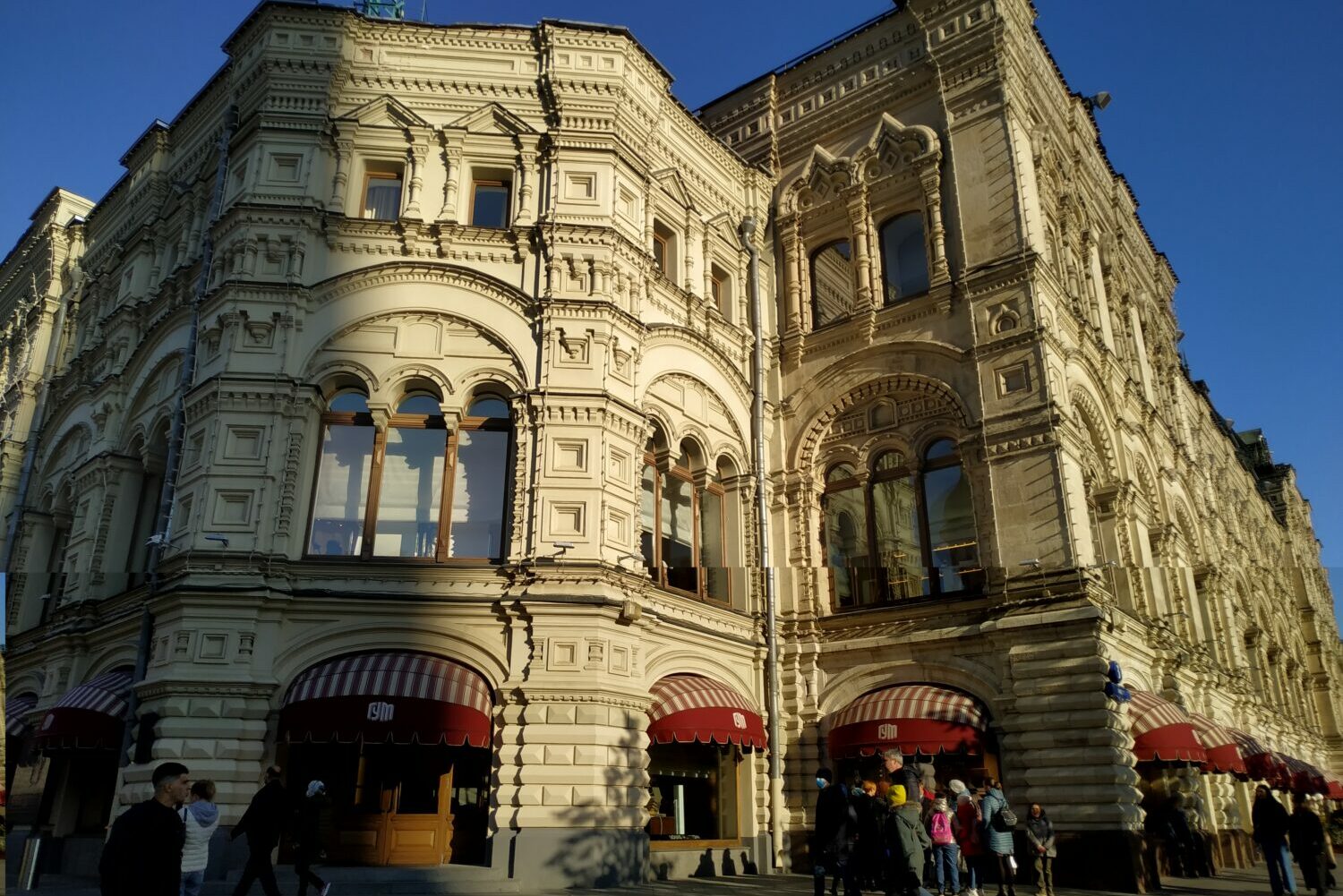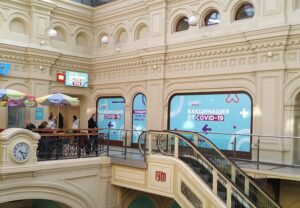
Vaccination rate among Russian students remains low yet covid cases are going up
While covid cases are on the rise again in Russia, only 30 percent of Russian students have been vaccinated against the coronavirus. This is in line with the national vaccination rate of 31,2 percent. Belgium’s vaccination rate amongst young people is with 85,07 percent much higher.
‘Vaccinations can protect you against COVID-19 complications and death and can create herd immunity’, voiced Elizaveta Neupokoeva, a Russian journalism student at Moscow State University. A portion of the students at the Moscow State University believes that the COVID-19 vaccines are essential to end the pandemic. Timur Medzhidov, a fourth-year journalism student at MSU, shares the same opinion: ‘I got vaccinated in December 2020 to prevent infecting my family, as Covid-19 causes harm to elderly people. When I heard that some of my fellow students suffered from covid, I even decided to get revaccinated soon.’
‘After both the first and second jab I felt awful’
Anastasia Volodina, also a journalism student, shared her painful experience with the Covid-19 vaccine: ‘After both the first and second injection, I felt awful. I had a horrible headache the night after my first dose. My temperature climbed to over 39°C and my body was shaking so badly I could not even hold a glass.’ These effects lasted exactly one day after both covid jabs. Other students reported shivering, fatigue, weakness and forearm pain after having received an injection against the coronavirus.
‘Some people even had to queue for more than an hour to receive their vaccination’
MSU students point out that appointments for covid injections do not always run smoothly. ‘My Sputnik V vaccine required two shots and during the first appointment I had to queue for a long time and due to lack of space and available pens I had difficulty filling out my vaccination form’, says Daria Emikeeva, another MSU journalism student. ‘My sister experienced a bad needle insertion and had to sit in the office for more than 20 minutes, and not the previously arranged five minutes. During the appointment for my second dose, I had to change offices three times, because the doctors had to run different errands or were eating. Some people even had to queue for more than an hour to receive their vaccination.’

Vaccination programme
Russia was the first country in the world to develop and approve a vaccine against the coronavirus: Sputnik V. Therefore, the start of a large-scale vaccination campaign in January 2021 was relatively early in comparison to European countries. The campaign did, however, not continue at the same pace. As a result, 44,9 million (31,2 percent) of the 144 million Russian citizens have been vaccinated completely.
Although Russian citizens are not obliged to get the vaccine, some regions have made the vaccination mandatory for certain groups. Sergey Sobyanin, the mayor of Moscow, for instance, decided the injections to be mandatory for service sector employees.
Three different vaccines – all developed in Russia – are used for the primary injection: Sputnik V, CoviVac and EpiVacCorona. The single-dose vaccine, Sputnik Light, is available for those in need of a revaccination jab. Only adults with Russian citizenship are qualified to receive a vaccine.
Higher vaccination rate in Belgium
Vaccination centres in Belgium are slowly closing their doors as 79,5 percent of the population has been given a shot against the coronavirus. Specific data on the number of students that have received both their doses have not been published. Between the age of 18 and 29, a percentage of 85,07 has been vaccinated completely.
Since the start of the new academic year, international students have had the opportunity to receive their shot against the virus at their schools and universities or in one of the vaccination centres.
This article is based on an article written by journalism students from the Moscow State University. Our students from the Global News Room project work in collaboration with students from the Moscow State University.
Text: Renske Van Hoof and Jellen Monsieur, final editor: Andrei Stiru
Photo: © Kseniya Sigaeva, Andrey Androsov




